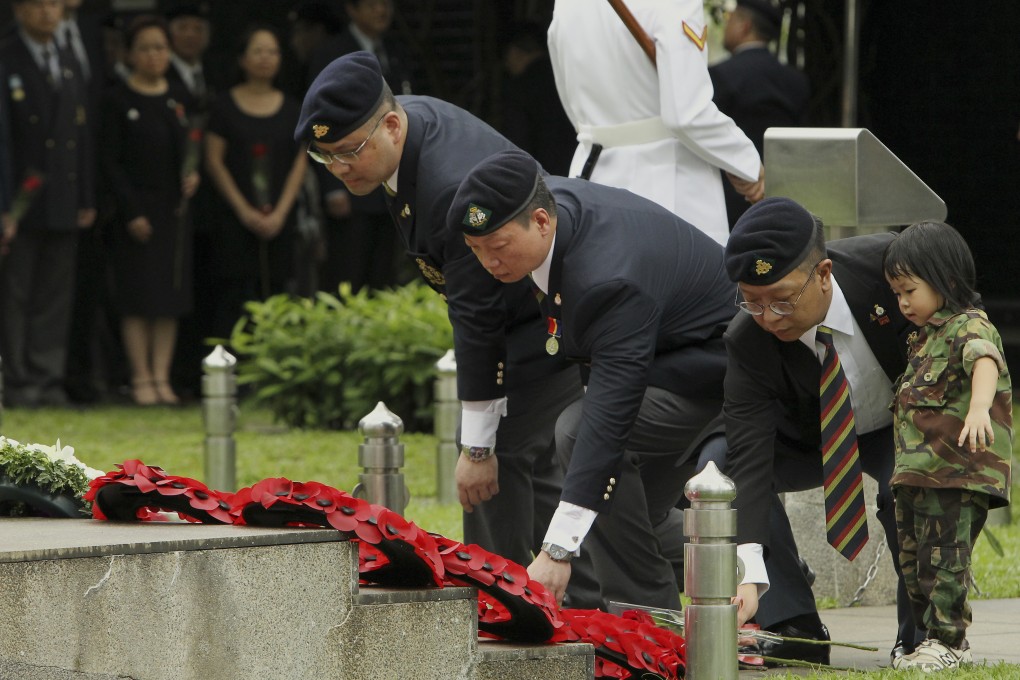Second world war veterans and diplomats pay tribute to Hong Kong’s dead heroes
Memorial wreaths and red roses laid to mark 70th anniversary of liberation from Japanese

Veterans of the second world war – the oldest aged 95 – gathered at the Garden of Remembrance outside the City Hall in Central yesterday morning to mark the 70th anniversary of liberation from the Japanese and pay tribute to those who gave their lives defending Hong Kong.
Jointly organised by the Hong Kong Prisoners of War Association and the Royal Hong Kong Regiment (The Volunteers) Association, the 30-minute memorial ceremony began at 11am with a two-minute silence.
Then, to the sombre sound of bagpipes, Hong Kong’s undersecretary for home affairs Florence Hui Hiu-fai and representatives of the consuls general of the United Kingdom, Canada, India and the United States walked up to the memorial shrine one by one to lay wreaths.
They were followed by veterans, who placed red roses.
Despite the heat and high humidity, veterans turned out in their suits and berets, adorned with badges and medals.
“There are only around 20 of us left now,” said Choi Bing-yiu, a 94-year-old war veteran. “Most of us died and many cannot come; some are in wheelchairs and some are in elderly homes. The fact that I can come is already very fortunate.”
I have been through a lot, from swimming for 41 hours to eating rats